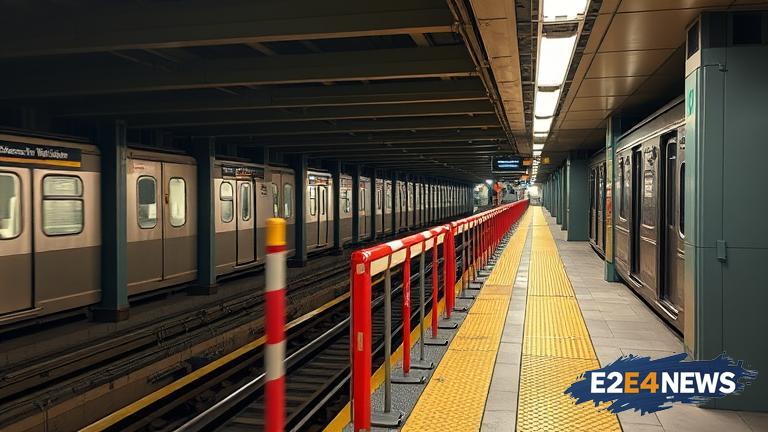The New York City Transit system is taking a significant step towards enhancing passenger safety by installing platform barriers at several subway stations. This initiative aims to prevent accidents and ensure a safer commuting experience for millions of New Yorkers. The platform barriers will be designed to prevent individuals from accidentally or intentionally falling onto the tracks. The MTA has identified several high-traffic stations where the barriers will be installed, including major hubs like Times Square and Grand Central Terminal. The installation process is expected to begin soon, with the first phase focusing on the busiest stations. The barriers will be made of durable materials and will be designed to withstand the heavy foot traffic and harsh environmental conditions of the subway system. The MTA has emphasized that the installation of platform barriers is a top priority, and the agency is working closely with contractors and engineers to ensure a smooth and efficient process. The project is expected to take several years to complete, with the MTA planning to install barriers at over 100 stations. The initiative has been welcomed by passenger advocacy groups, who have long been calling for improved safety measures in the subway system. The installation of platform barriers is also expected to reduce the risk of suicides and other intentional acts, which have been a concern for the MTA in recent years. The MTA has stated that the barriers will be designed to be aesthetically pleasing and will not obstruct the flow of passengers on the platforms. The agency has also emphasized that the barriers will be regularly maintained and inspected to ensure they remain in good condition. The installation of platform barriers is part of a broader effort by the MTA to improve safety and accessibility in the subway system. The agency has also been working to improve lighting and signage in stations, as well as expanding accessibility features for passengers with disabilities. The MTA has stated that the installation of platform barriers will not disrupt regular subway service, and passengers can expect minimal delays or disruptions during the construction process. The project is expected to cost several hundred million dollars, which will be funded through a combination of federal, state, and city funds. The MTA has emphasized that the investment in platform barriers is a necessary step towards creating a safer and more modern subway system. The agency is committed to completing the project as quickly and efficiently as possible, while also ensuring that the barriers are installed to the highest safety standards.
